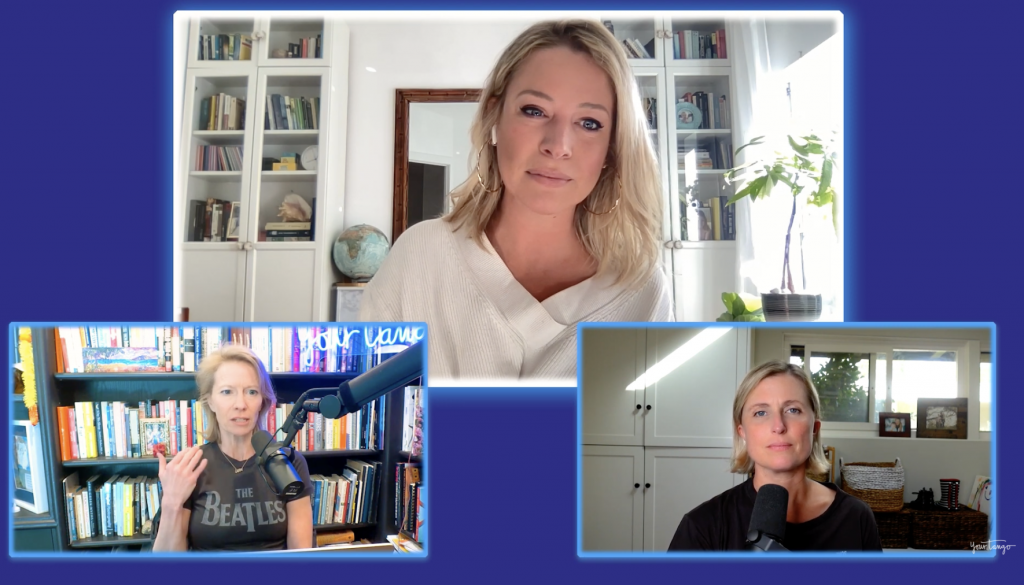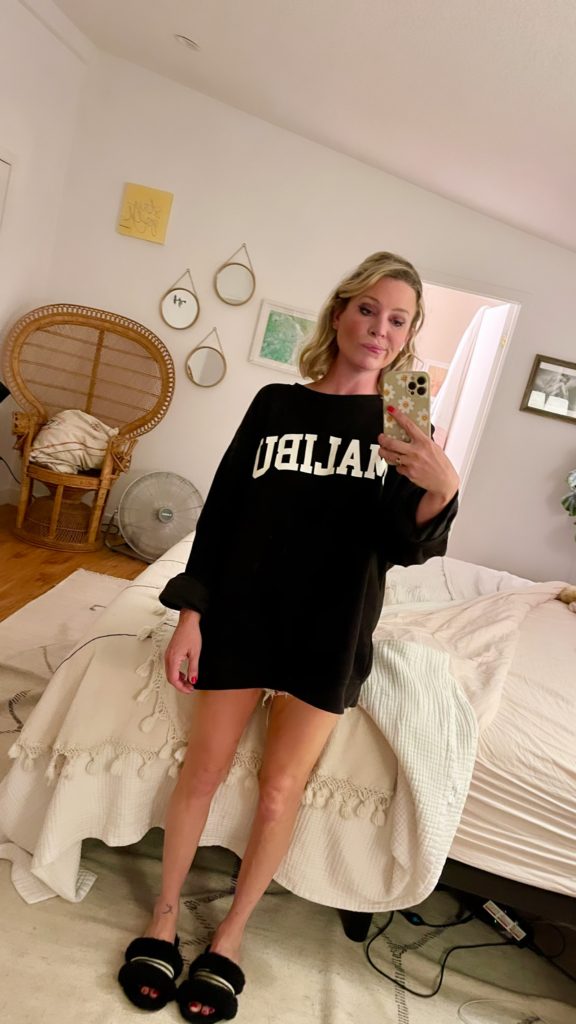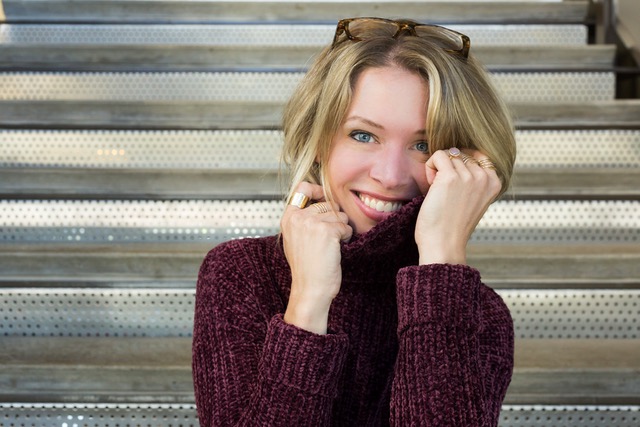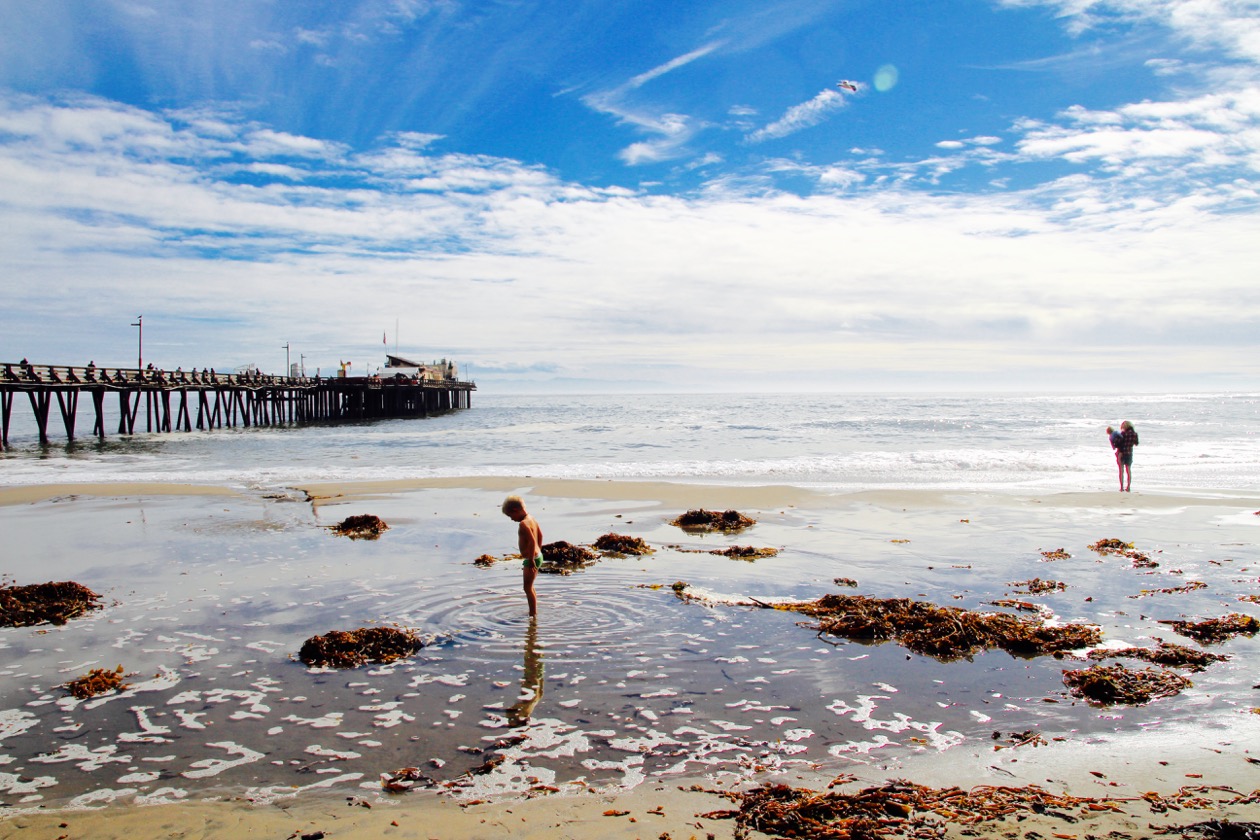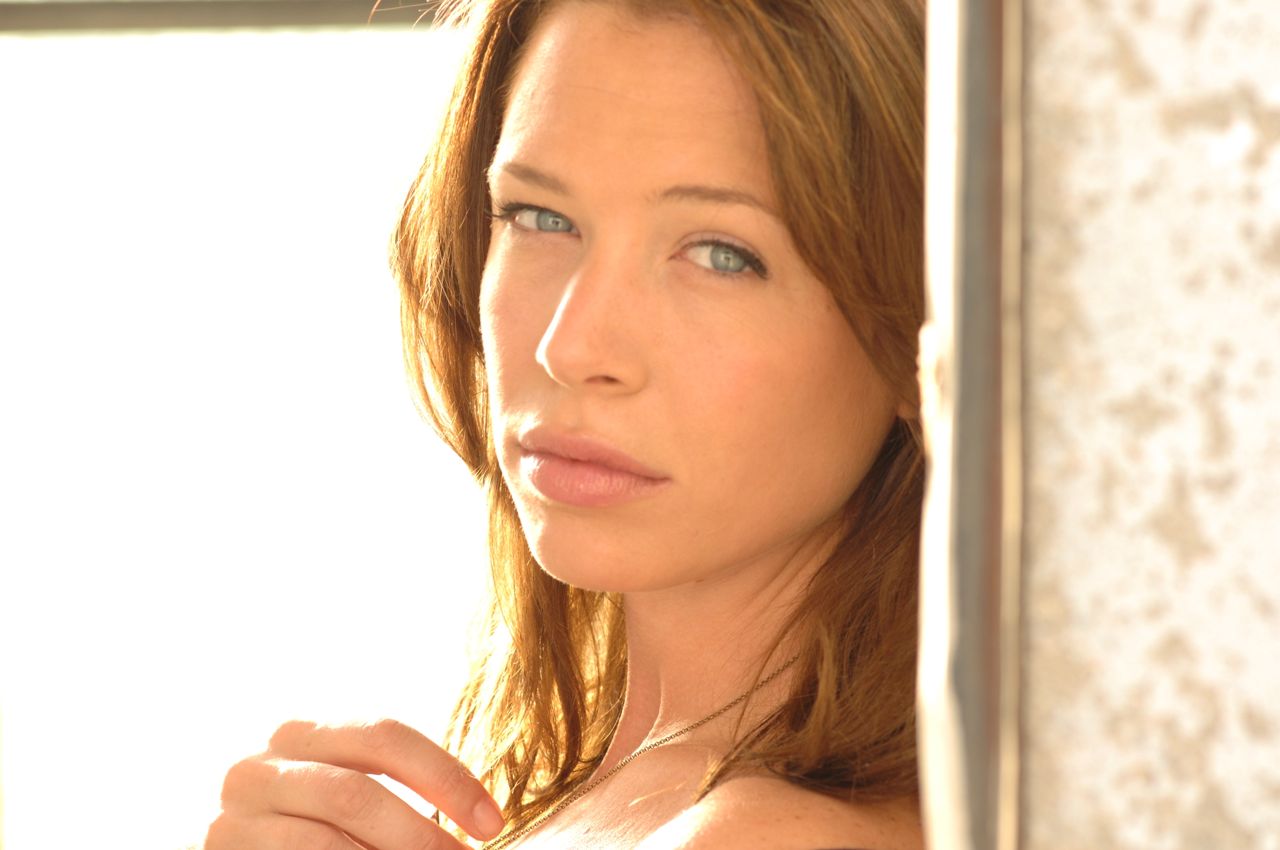
My 2005 head shot, which was clearly very serious business.
I know I said yesterday that I wasn’t going to publish the post I wrote over on Medium here because I figured many of you have already heard bits and pieces of my “I was fired from It’s Always Sunny In Philadelphia” story, but last night I was laying in my bed, half-reading about the Taylor Swift and Katy Perry drama but mostly thinking about why I’d published an original piece on a site other than my own – which is not something that I typically do; I like to save the best stuff for you guys – and you know what I realized? The real reason I didn’t originally want to publish this post here was because the people who read here every day know me. Really, really well. And sometimes it’s easier to release the stories that make me feel the most vulnerable into a world populated by strangers rather than writing them on the walls of my home.
It is humiliating, that some (many?) people think that the most interesting thing about me is the fact that I was once almost on a TV show, and then wasn’t. It is embarrassing, explaining to people why the fact that I don’t act anymore is a positive thing for me, why I truly, truly wouldn’t have it any other way, and watching their foreheads wrinkle in pity anyway. If you are a person who was once an actor – or a musician, or an artist, or a writer, or anything “creative” – in some ways you will always be an ex-actor/musician/writer; that will always be the way you are introduced at a party (the subtext, of course, being that of course you wish you were something other than what you are right now). And so for years, I tried to bend and twist my past into a story that wouldn’t make people whisper behind my back once I’d walked away: god, could you even imagine how much that sucks for her?!
Nobody wants to be the person it sucks to be.
But you know what I’ve learned lately, mostly because of this website right here? If you just keep talking and talking about those moments that you’re frightened or embarrassed or ashamed to revisit, one day they start losing their power, and become what they always were: just one more thing that happened in this beautiful, special life that’s all your own.
![]()
![]()
![]()
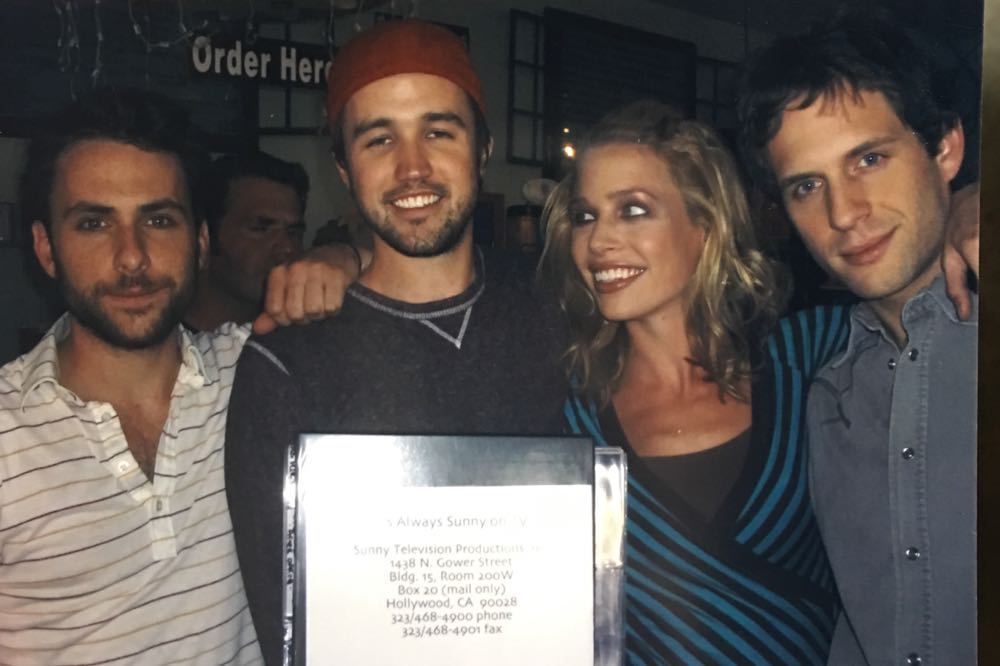
That Time I Got Fired From It’s Always Sunny In Philadelphia
It’s a tricky thing, writing about an incident that so clearly paints me as the sad sack, the bitter ex-actress who coulda been a star! …and then wasn’t, and was instead relegated to a footnote in the storied history of a television show.
Six years ago, around the time that I first started my website, Ramshackle Glam, I wrote about my experience of co-creating — and then subsequently being fired from — It’s Always Sunny in Philadelphia. It’s a story I’ve already told, but today I’m going to tell it again, for two reasons.
The first is because my original post was not especially well-written, and I want to give it a second shot because I’m persnickety like that. The second, more salient reason is that the first time I wrote about this I made it all about me, and that was a mistake, I think. Because it’s about something bigger, a truth that’s been said ad infinitum but bears repeating over and over until it becomes fiction: when it comes to career opportunities, gender matters. I have a daughter of my own now, and I want to make sure I get this story right because I want her to know that she should never, ever be silenced by people who make her feel like she’s too small to be heard. Her voice matters. She matters. And so do I, even though I didn’t always know it.
So here’s a little piece of my story — including the parts I left out before, and the parts I’ve only figured out in the years since I first told it.
![]()
![]()
![]()
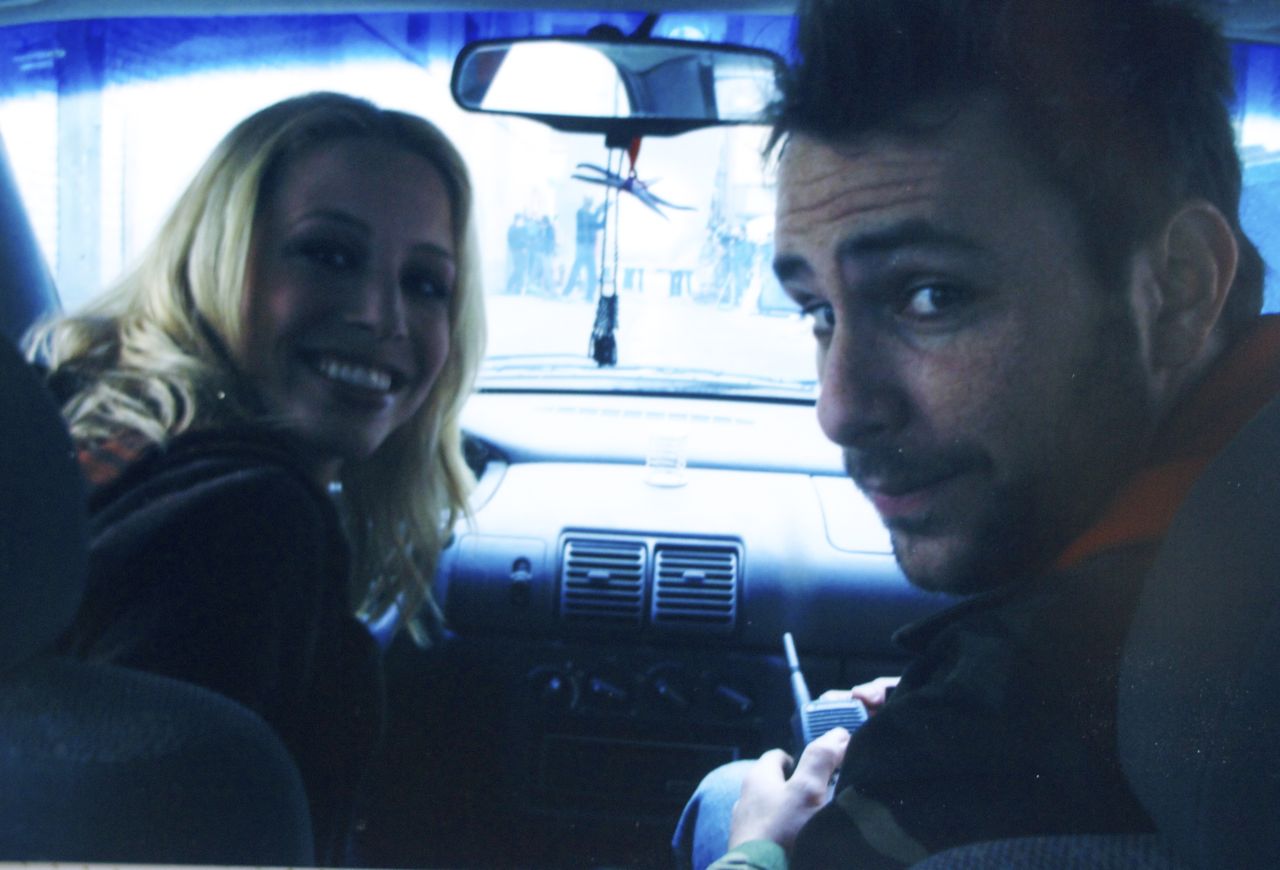
When I graduated from college, I moved out to Los Angeles, where I knew virtually no one except for my ex-boyfriend, Rob. We began dating again, and our relationship quickly grew serious enough that we started planning to move in together, and eventually get married. A couple of months after I arrived in LA, Rob conceived of the idea for a Curb Your Enthusiasm-style show that centered on a group of four actor friends living in Hollywood, and over the next year or so Rob, myself, and our friends Glenn Howerton and Charlie Day shot two pilot episodes for the show, which at the time was called It’s Always Sunny on TV. Other friends filled in the remainder of the roles — David Hornsby, Jimmi Simpson, Mary Elizabeth Ellis, who later married Charlie — but mostly it was just the four of us: Rob, Glenn, Charlie, and me.
Rob named my character “Sweet Dee” as a nod to her optimistic personality, which was originally intended to contrast sharply with the guys’ misanthropy. Despite the direct claims of the cast in articles like this, I assure you: I existed. I can’t help but note here that Rob, Glenn, and Charlie used their real names as their character names, while I was given a moniker of Rob’s own creation. I also can’t help but note that arguably the second-most-visible female character in the pilot was The Waitress: A woman defined not by her identity, but by a job title that she visibly wishes wasn’t her own. But that’s a topic for another day; I have to assume there’s some sociology student out there who’s written a paper on this topic by now.
It was a lot of work for virtually no pay, but we were unemployed actors with not a whole lot to do in between Coffee Bean and Tea Leaf runs and the occasional audition, and our ennui and general idleness became a key element of the show. When only one or two of us were on camera, the others held boom mics or ran to Rite Aid for more camcorder tapes. We improv-ed out most scenes before Rob wrote them, and I remember how exciting it was: not just reading lines from a script that had been handed to me, but actually watching these people emerge.
We shot a lot at my West Hollywood apartment because it was “nicer” (read: cleaner) than any of the guys’ places. One day Glenn and I were shooting a scene where the two of us were sitting on the couch drinking wine and talking about our friend who had just been diagnosed with cancer. Of course we were drinking real wine (because why wouldn’t we), and we were going off-script and Glenn was killing it, and I remember just having so much damn fun. We were all broke; we were all stressed about where our respective lives and careers were going, but still : I think we all felt like what we were doing was big. I’m not just speaking from the perspective of where the show ended up going; even back then we could feel its potential like a living thing.
![]()
![]()
![]()
When we finished shooting the two initial episodes, Rob began shopping them around to networks, and a miracle happened: FX offered to shoot a “real” pilot for the show. And they were going to PAY US. What?!
All of a sudden we were on an actual set, with for-real makeup artists and trailers and someone else to hold the boom. Everyone at the network seemed excited, but we still had trouble believing that all of this would actually pan out. We all knew what it was like to get cast in a part only to end up on the cutting room floor, or have the project never see the light of day at all. We knew what it was like to think everything was about to change when really the only thing that was going to happen was that we were about to be drop-kicked back to square one, and we were all sick and tired of that happening.
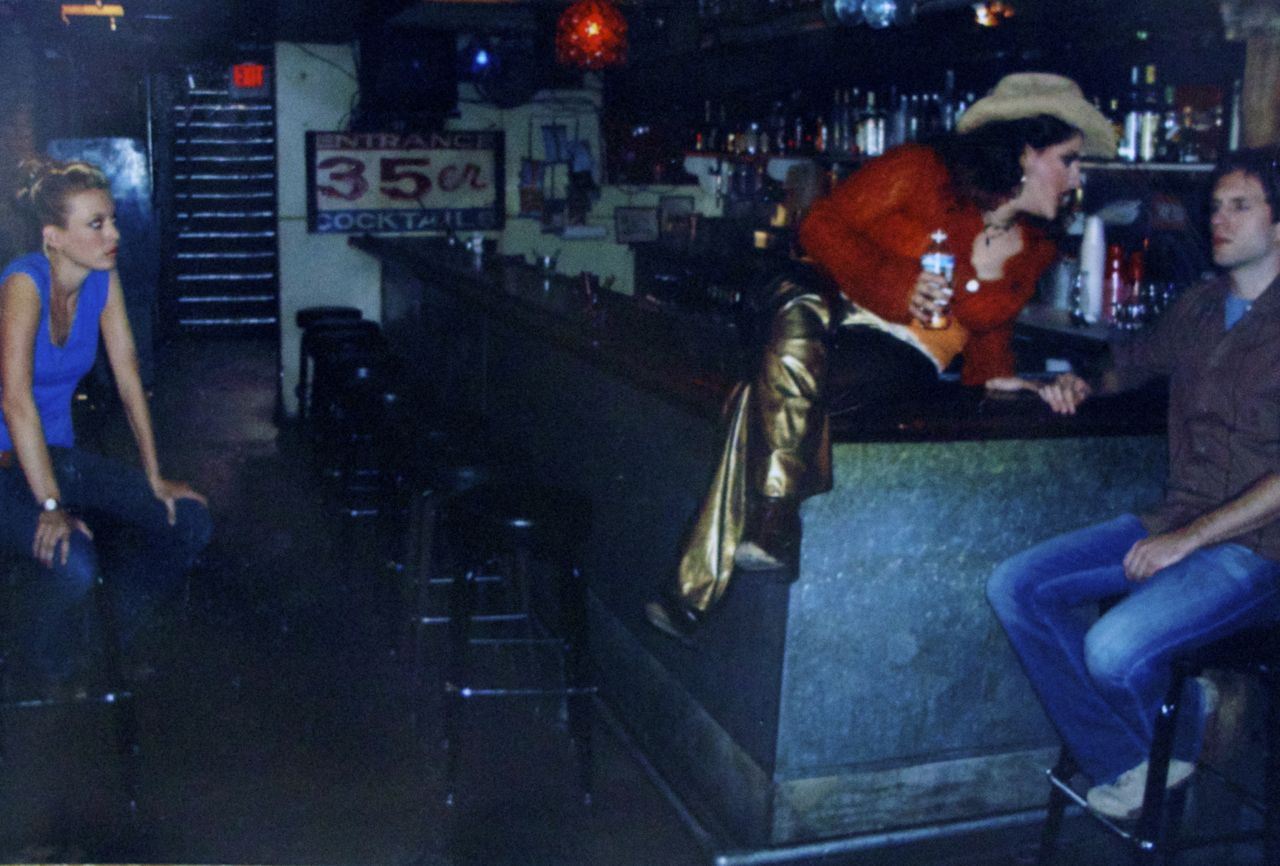
At one point, one of the guys (I’m pretty sure it was Glenn, but I could be wrong) called a meeting in Rob’s trailer — no secondary cast members, no execs…just the four of us. The question on the table: “What if the network wants to pick up some of us, but not all of us?” I specifically remember someone — again, I think it was Glenn — saying that I had nothing to worry about, because I was “the pretty girl” (not to mention the only girl) and that Rob was clearly fine because he was the showrunner, but that he was scared that he and Charlie might be replaceable.
And so this is what we did, sitting there in Rob’s trailer with paper plates of scrambled eggs from craft services balanced on our laps: we agreed, together, that the network would have to take all four of us…or none of us. We had been in this thing together for over a year now, and we simply wouldn’t allow them to split us up. We shook hands, and headed back to set.
Around that time, my relationship with Rob began to unravel — and I started to sense that I was on unsteady footing, despite our “all for one” pact. One day I walked into the office that FX had set up for the show, and was surprised to find three desks: one for Rob, one for Glenn, and one for Charlie. They’d all been made executive producers.
Very quickly — almost overnight — I went from being at the center of the project to standing on the periphery. I blamed my age; I blamed my inexperience; I blamed what I saw as my lack of talent…but the fact is — even though at the time I lacked the words or the conviction to say it — that to the people in charge, I was nothing more than another blonde actress. FX at the time was a cigar-smoking, whiskey-drinking old boys’ club, and I was welcome when I was the girlfriend of the creator — but once I wasn’t, my role in creating their new pet project was forgotten.
I said nothing, not even to Rob. I was terrified of losing my job, and it seemed to me that the best course of action was to sit down, shut up, and be grateful for what I had. I didn’t want to ask why I hadn’t been made a producer — why, in fact, I hadn’t even been included in the conversation — because the answer was obvious: Rob, Glenn and Charlie (and the agents, managers, and execs that they had started going out for boys’ nights with) were The Guys — the masters of this little universe that they’d created — and me? I was just a girl — and a replaceable one, at that.
The pilot wrapped, and shortly afterwards I ended my relationship with Rob. During one of our break-up conversations, he told me in no uncertain terms that if I did not stay in the relationship, I would be off the show. I broke up with him anyway, and moved into the house that we had been planning to share all by myself.
When FX signed us on to the pilot, one of the first things I did was buy my parents a painting that I’d seen several months earlier and had thought they’d love, of a door hovering in the middle of a massive room. The door is cracked open, and you can see the ocean outside running right up to the frame, threatening to spill over.
It arrived a couple of days after I was fired. I couldn’t afford it anymore, but I also couldn’t bring myself to return it, so that painting hangs in their apartment still.
![]()
![]()
![]()
I can’t tell you how many people have asked me why I didn’t just stay in the relationship until the show was picked up and my contract was set in stone. The answer is that sleeping in a bed every night alongside a person I was not sure that I wanted to be sleeping with because there was money on the table felt like the worst kind of betrayal; a betrayal both of myself and of my relationship with a man who I loved still, despite the fact that we didn’t seem able to coexist under the same roof. Basically, I just felt like staying with someone under those kinds of pretenses was a shit thing to do.
And besides, I honestly thought he was bluffing. I couldn’t even imagine how a person who’d helped to create a show could end up tossed off of it; it didn’t even seem like it could possibly be legal. I remembered that promise we’d made, and I knew Rob, Glenn and Charlie did, too. I trusted them, and I trusted that — despite the obvious tension — everyone would ultimately do what was right, because at 23 years old I still thought that was how things worked.
A couple of months later, my agent and manager set up a conference call during which they let me know that while Rob, Glenn and Charlie had been picked up for the series, I hadn’t been. I got a small payout (the equivalent of one episode’s salary), my agent and manager fired me, Rob married the actress who he hired to replace me (Kaitlin Olson, who is lovely and talented and funnier than I could ever possibly be, and whose work I in no way intend to disparage by the writing of this piece), and I never heard from Glenn or Charlie again — not since the day my relationship came to an end.
Oh god, was I ever angry. For such a long time. In a panic, I did things I’m not proud of — trying to use my cell phone to record damning conversations (which is a crap thing to do a person regardless of how you feel about them, in addition to being completely illegal); trying to make my next relationship into a Grand Love Affair when it very obviously wasn’t; trying to starve myself into thin air because maybe if I couldn’t feel anything I couldn’t feel the pain of what I’d lost, which felt like everything.
I considered suing, of course. I made an appointment at a firm specializing in entertainment law, and I sat there in an enormous maple conference room in my best Banana Republic skirt suit listening to an attorney tell me that if I took on the case, I would be going to court against not only a person whom I still cared for — but also Three Arts Entertainment, FX, and the Fox Network. The case, he told me, would be long and expensive, and no sane casting director would touch me while I was embroiled in it. It was further likely, he told me, that the lawsuit would mean the end of my career as an actress. I would always be known as “that girl who sued FX.”
You’ll never work in this town again.
I thanked him for his time, and on my way out I stopped into the lobby bathroom to change into a pair of jeans for my next audition.
![]()
![]()
![]()
This account is, I think, more cogently written than my original version, but that’s kinda besides the point; the more important answer to why I’m writing about this again now is that years have passed — years in which my life and self have changed in ways I never, ever saw coming, and certainly couldn’t have imagined as a young ex-actress struggling to figure out what in the world she was supposed to do — and I think this story matters for reasons I didn’t see back then.
My friends did wrong by me; I think that’s obvious…but I get why they did what they did, and the wrong that was done was bigger than three men breaking a promise. I don’t blame them for taking advantage of their first big opportunity in a very tough industry. I do, however, blame the social values that created a situation in which a young woman was encouraged by nearly everyone she knew to trade sex and love for money “just for a little while” — because she had no other real recourse, no other way to ensure that she’d be compensated fairly for her work.
This isn’t a fun story to tell (although I do think it’s an interesting one, and a meaningful one). It’s a story that makes people — myself included — look not especially honorable, but even beyond that: it’s a tricky thing, writing about an incident that so clearly paints me as the sad sack, the bitter ex-actress who coulda been a star! …and then wasn’t, and was instead relegated to a footnote in the storied history of a television show. I’m that guy who was almost on Friends instead of Matt LeBlanc. I’m the fifth Beatle.
So how do I tell a story like this and not sound pathetic? How do I say the words “I feel good about the decision that I made” and have anyone in the world believe me, when the other choice would have meant becoming a massively wealthy star of a mega-successful show? I don’t know if it’s possible to convince most people on this point; there’s a hell of a lot of cultural baggage having to do with the value we place on fame and money involved here.
But I also don’t think I care anymore whether I “seem” like a sad failed actress. I’m not an actress. I’m not sad. And I’m also not a failure. The one thing I always wanted more than anything else (and certainly wanted more than I wanted to be an actress) ended up happening: I wrote a book, and it was published. And then I wrote five more, and they were or are about to be published, too. The seventh is coming out next year. I’m living in the place in the world that I want to live in with the people I want to live with, and while I suppose it’d be nice to have a bunch more money, I’m good — great, even — with what I’ve got.
I’m happy.
![]()
![]()
![]()
I’m not angry anymore; not for myself. I am, however, still super pissed on behalf of the 23-year-old girl who felt so unsure of her own footing in this world that she felt it best to just step aside and not rock any boats. She watched her own story get written over by people with more money and more power than she could ever dream of having, because she thought that if she said anything she’d be called a liar or crucified for her words…and the worst part is that I’m fairly certain that she was right.
Man, do I wish the person I am now could go back in time and talk to the girl I was. I’d tell her to be brave, to say what she deserved, and to demand it if it wasn’t given. I’d tell her that no man — and certainly no television network — is allowed to harm her career because she has decided to stop sleeping with someone. I’d tell her that things were going to look a lot different a few years down the road, and that she needed to keep on talking, over and over, until her voice was heard.
I’d tell her to make some noise.
I can’t tell her those things; the girl I was is many years gone. But I can speak for her now, and say the things that she was too scared to give voice to. I can say in no uncertain terms that I was done a disservice. I can say that even though I felt like I deserved to be pushed aside, I did not. I can make sure that I know, way down deep, that even though I might not have always believed it, I matter — and the reasons why have nothing to do with whether or not I once got to be on a goddamn television show.
